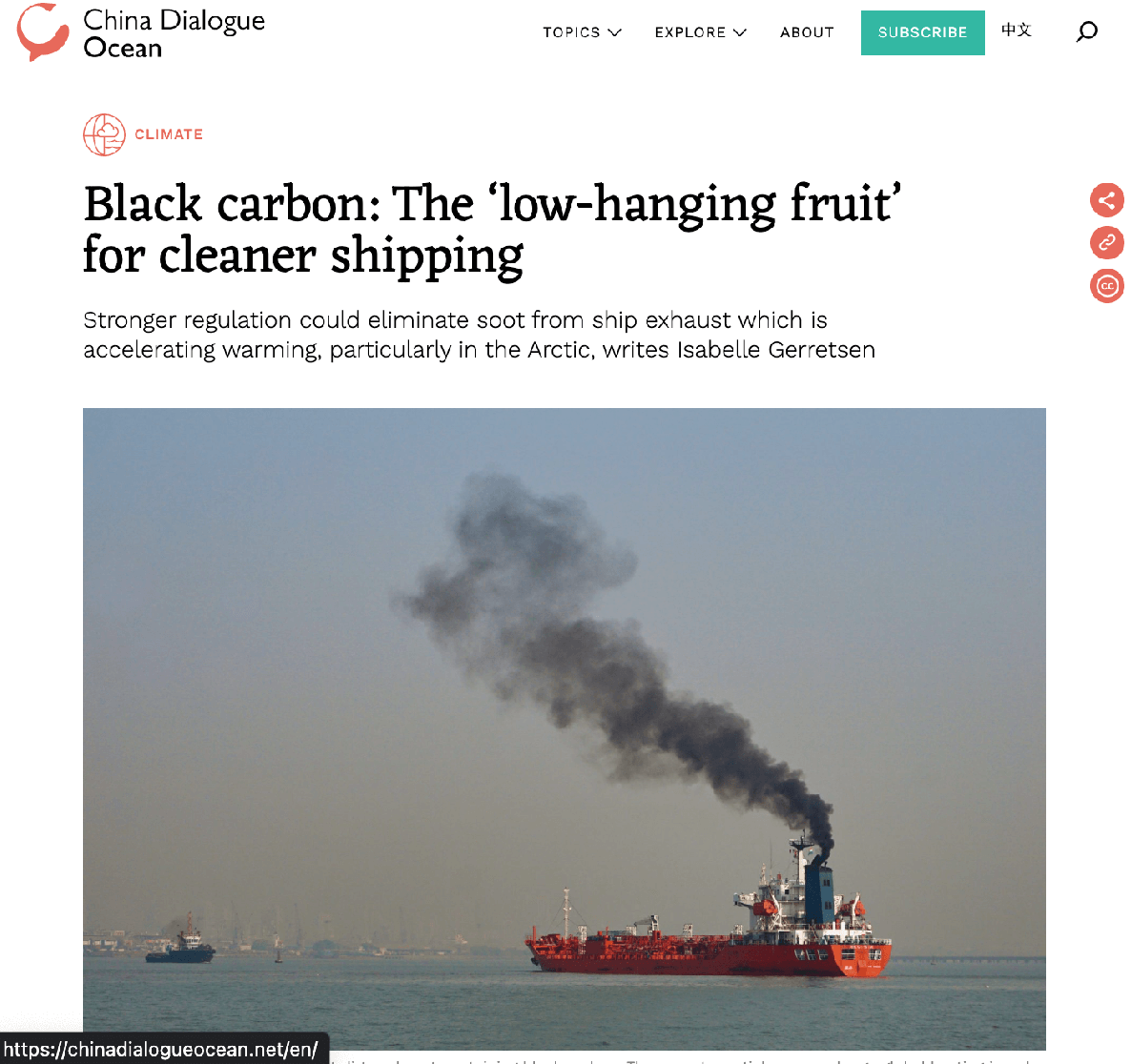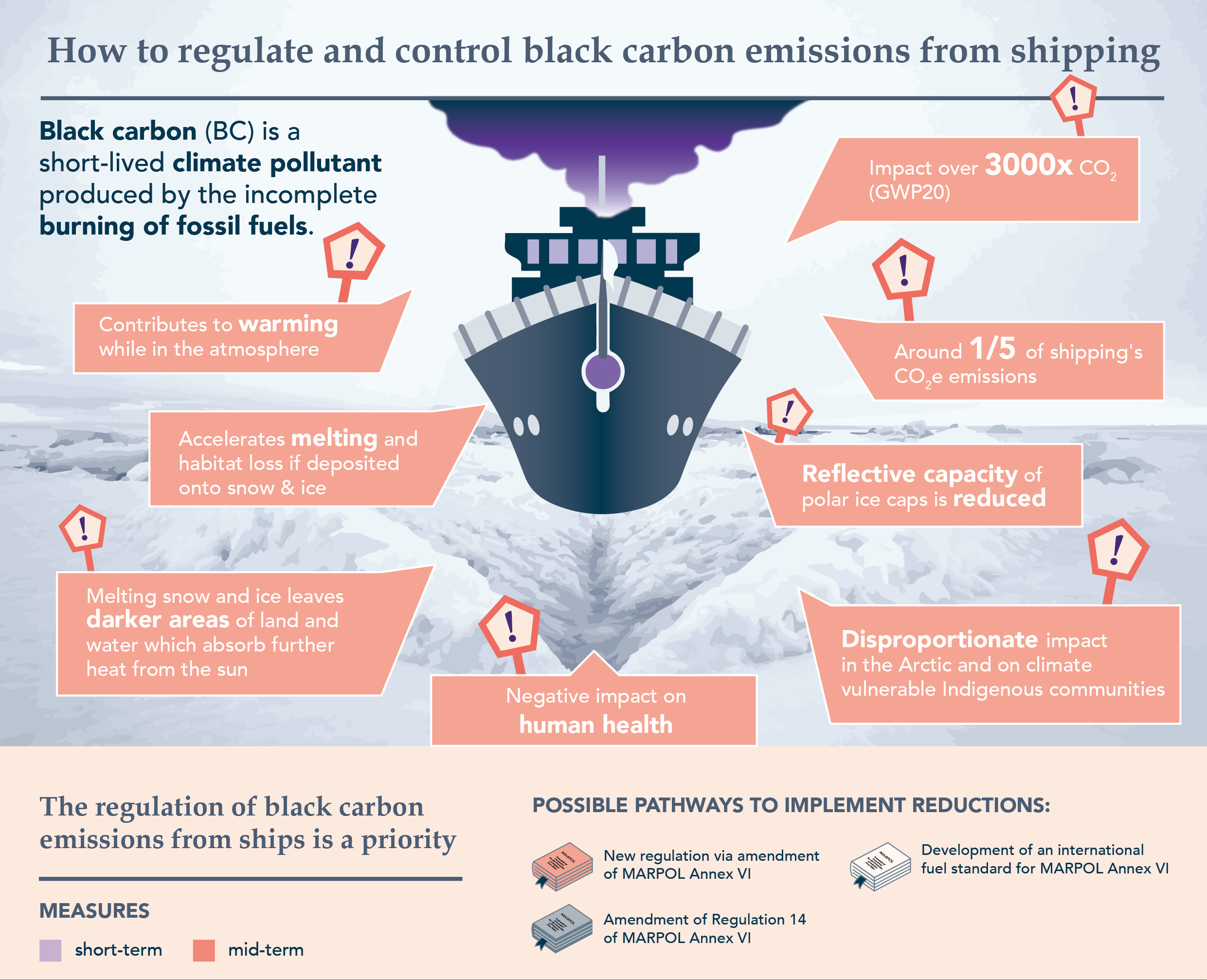Isabelle Gerretsen, China Dialogue, April 2023:
Stronger regulation could eliminate soot from ship exhaust which is accelerating warming, particularly in the Arctic, writes Isabelle Gerretsen
Shipping is a highly polluting industry. Between 2007 and 2012, it was responsible for roughly 3% of global greenhouse gas emissions from fossil fuel use and industrial processes, or around one billion tonnes of CO2 equivalent per year.
Ship exhaust may also contain “black carbon” – sooty particles that absorb sunlight and trap heat in the atmosphere, contributing to global warming. Black carbon rapidly accelerates ice melt when it lands, by darkening surfaces and thus reducing how much sunlight they reflect. At the same time it poses a serious health risk to coastal communities.
Environmental groups say this climate and health threat could easily be eradicated if ships were forced to use cleaner fuels.
The impact on warming
Black carbon is produced when ships burn heavy fuel oil, which is “a hazardous, toxic tar-like fuel”, says Andrew Dumbrille, an advisor to the Clean Arctic Alliance and the Inuit Circumpolar Council, two environmental non-profits. “It is literally the stuff at the bottom of the barrel.”
“You have to heat it up to use it… it’s like burning tar, one could walk on it,” he says. “Our global trade system is enabled by this highly polluting by-product fuel.”
Black carbon emissions are responsible for around 20% of the shipping industry’s climate impact over a 20-year period, according to the Clean Arctic Alliance.
It is “especially damaging, and has a disproportionate impact, when it is released in or near the Arctic,” says Sian Prior, lead adviser to the alliance.
The Arctic is already warming almost four times faster than the global average, at 0.73C per decade compared to the global average of 0.19C per decade between 1979–2021, according to a 2022 study by Finnish researchers.
“When black carbon settles in the polar environment… the surface starts absorbing more and more heat because it’s dark,” says Prior. “So you lose the albedo effect, which is the reflectivity of the snow and the ice.”
Continue reading: China Dialogue: Black carbon: The ‘low-hanging fruit’ for cleaner shipping




